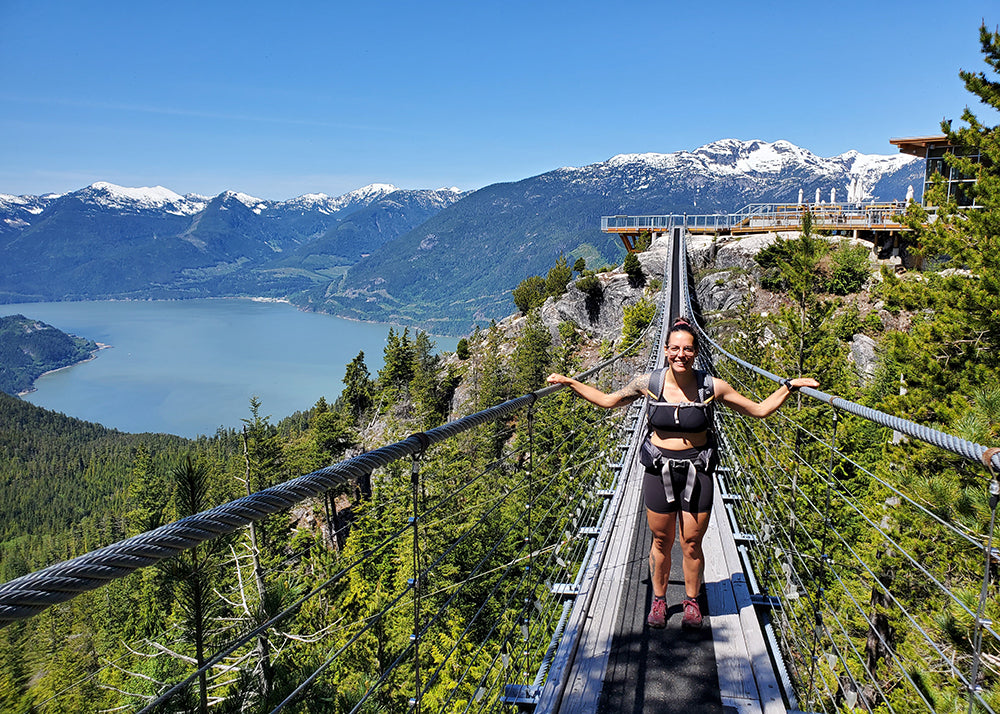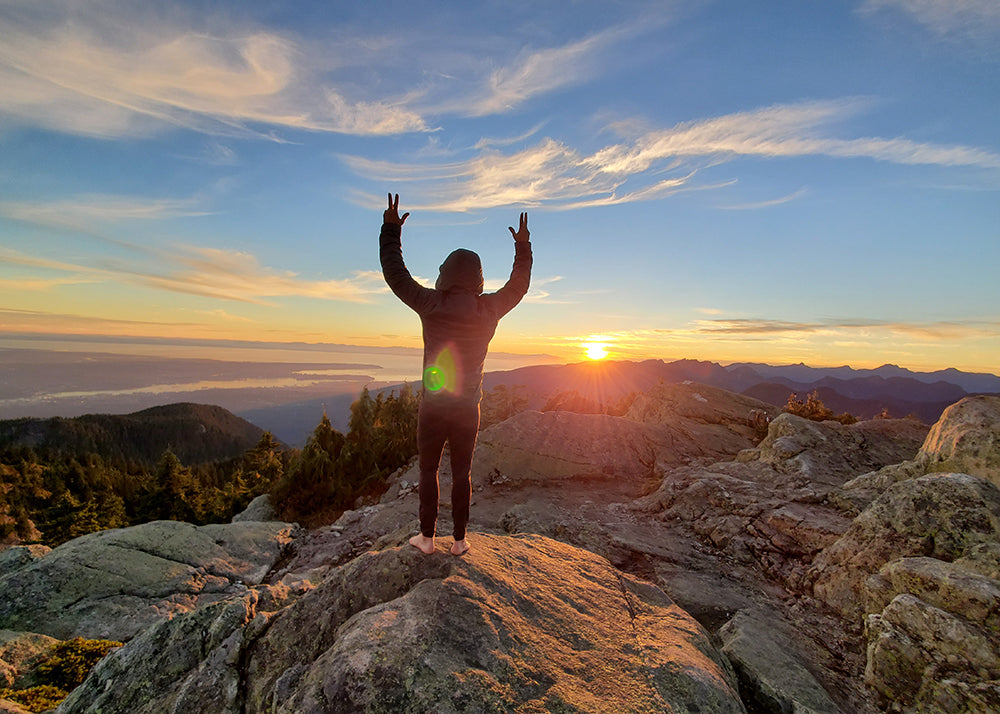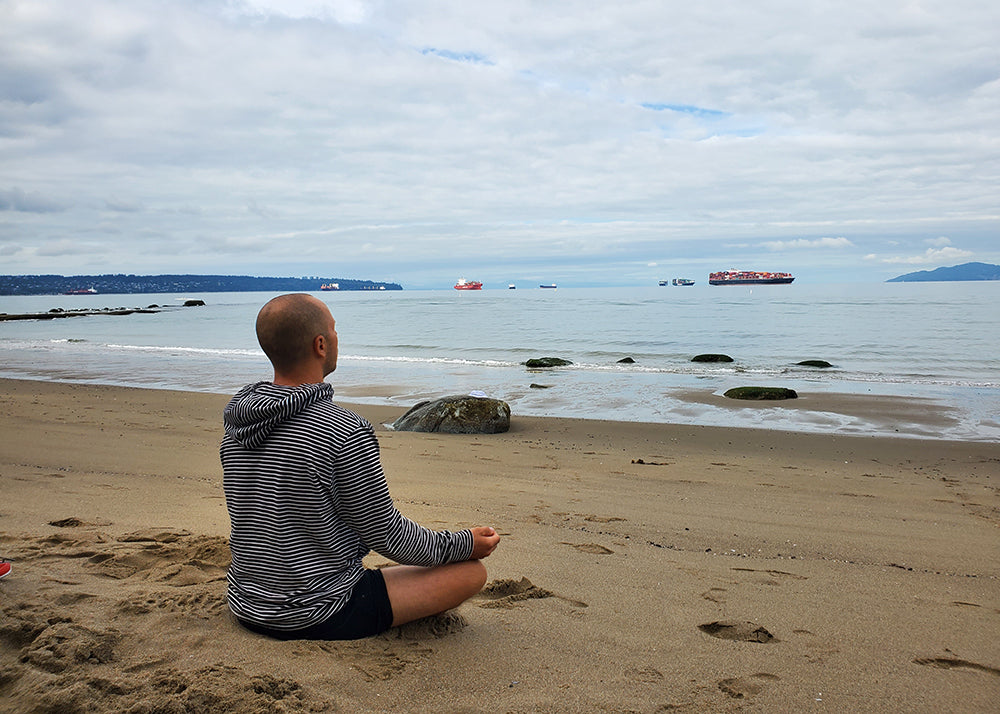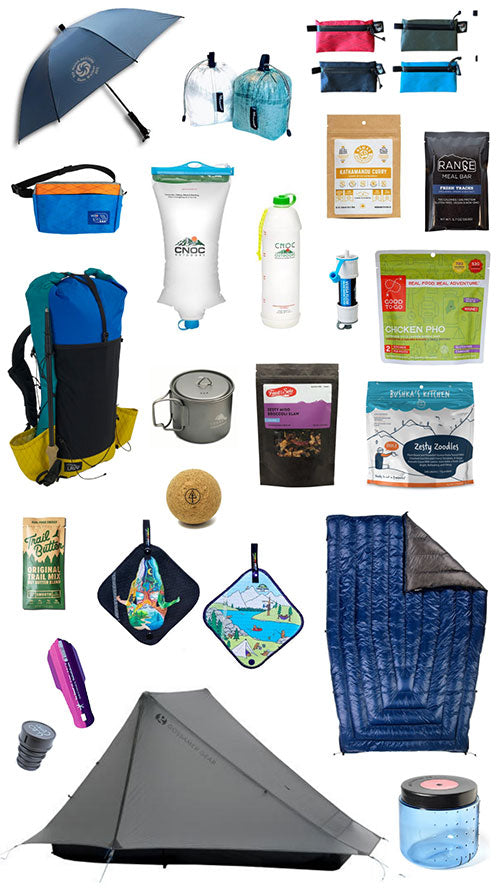
It's common to experience a bit of a low once a long expedition comes to a close, which I refer to as the "post-trip blues." After months on a thru-hike, cycle tour, or road trip, a new lifestyle gets established, which can be hard to give up once it comes to an end.
Often times an epic adventure changes us in profound ways, and going back to our old life can be challenging. After my first cross Canada cycling trip back in 2015, I returned to my adopted hometown to realize my old life no longer fit.
I had outgrown my old apartment, my old job, my old friends and even my old belongings. When I opened my storage unit, everything felt foreign, like I was staring into a stranger's past. I had experienced a major shift in my life and, although it was a good thing, I still felt lost in the desert of unknowns. The change was overwhelming and destabilizing, and I wasn't sure what to do, where to go, or how to get support.
It took me months of trial and error to move through my first case of the "Post Trip Blues," and it certainly wasn't graceful. Thankfully, the approaches that I established during that time have been easy to apply to all the other adventure endings I've had since then.
Here are a few of the many things I explored to help navigate the hardships and overcome the hurdles that precede the end of my trips:
1. Get Enough Movement

I think one of the biggest aspects of the post trip blues is that we go from moving our bodies outdoors everyday for many hours in a row to far less activity once it all ends. Our bodies were designed to move, our ancestors did a ton of it, and I think it's part of the primordial draw to these long-distance endurance feats.
For me, it's helpful after finishing an epic odyssey, to etch out as much time as I can on the daily to moving my body, breathing fresh air, and keeping those feel-good endorphins flowing. Of course, carving out 8-12 hours a day like on a hiking or cycling trip is tough once your adventure is over, so just do the best you can.
A great way to get more movement in a shorter amount of time is to up the intensity. Throw in some trail running instead of always walking or do some high intensity interval training a few times a week. The most important thing is finding a form of movement that you enjoy that's easy to commit to so you can just keep doing it.
2. Quit Drinking Alcohol

A common technique for avoiding tough emotions in our culture is to drink alcohol in an attempt try to drown out the pain. As effective as this may be in the short term, it's actually super detrimental in the long run because alcohol is a depressant. Not only that, but research shows that even if you only have one or two alcoholic drinks per week, your baseline anxiety becomes higher when you aren't drinking alcohol. This leads many people to continue reaching for alcohol to quench their anxiety, when in reality, it only feeds the beast. Secondly, hangovers aren't very helpful for creative problem solving, emotional processing, or getting good rest, which are all things that can help navigate the post trip blues with far more ease.
After my bike trip, I committed to a one month break from booze. After 30 days, I felt so good, I extended it to a year, which turned into four and a half years. Nowadays, alcohol isn't a part of my life, and I find that being sober has increased my well-being and overall enjoyment of life both during and after adventures.
3. Set New Goals

Accomplishing something meaningful that you've spent months working towards is rewarding, but can also leave you feeling a bit aimless and wondering "Now what?" For me, it's helpful to put some time aside to create new, less grandiose goals, like getting my nutrition back on track, committing to a daily meditation practice, or prioritizing the movement practices mentioned earlier.
If it's valuable for you to set a bigger goal for another epic adventure, like using your new baseline fitness to complete a marathon, or train for another thru-hike, that's great. I've learned over time that giving myself a chapter of time to process my previous grand feat before jumping into another one is necessary for my nervous system to rest and reset.
4. Practice Gratitude

There's that old adage, "Don't cry because it's over, smile because it happened" which I think is valuable advice. Being grateful for the opportunity to go on a grand adventure, even though it's over, replaces the feeling of being a victim of your circumstances with being empowered that you got to have the experience.
For me, part of gratitude is making space to consider how the adventure made me stronger, braver, and more resilient as well as considering where I could have handled situations better. Mining for these insights helps lead to better expedition behavior in the future, as well the opportunity for personal growth and self-awareness.
Breaking down big undertakings takes time and patience, so don't be discouraged if insights don't show up for you right away. Trust the process and know that things will come up as they need to, and when you're ready to see them.
5. Sit With It, Notice It, Honor It

This is the hardest one for me to do, and yet, the most important. I've had to learn that it's okay to be sad that something is over. It's okay to wish it didn't come to an end. It's okay to mourn aspects of your past. It's okay to feel unsure about your future. It's okay not to feel okay.
Learning to notice our pain and discomfort and sit with it is paramount in allowing the feelings and emotions to move through us, instead of getting stuck. Unfortunately, many of us have been trained over our lifetime to distract, numb, avoid, and ignore. We pick up our phones, go out to party, make a snack, bury ourselves in our work, or even use any of the aforementioned tools compulsively in an effort to dodge the heaviness. Remember, we are allowed to put aside as much time and space as we need to honor ourselves, what we've been through and what we are going through.
There is no time frame for healing.
However, if you are feeling constantly or increasingly depressed, anxious, overwhelmed, and distraught, and feeling like you can't navigate the hard times with your current support system, it's important that you reach out for some extra help -- either simply talking to a trusted friend or family member or to a professional to get the help you need.
A Final Thought
Something I like to remind myself of when something wonderful comes to a close, is a little piece of advice from singer/songwriter Mike Posner after he walked across America : "Beginnings always hide themselves in ends."
Do you have some valuable tools you use to navigate the post trip blues?
Please share them with us in the comments below!
Ali Becker is a freelance adventure writer and narrative storyteller who shares compelling conversations about personal transformations, overcoming limitations, wellness education, and adventurous situations. You can follow her rambling adventures on Instagram at @thisisalibecker.














4 comments
george
Great ideas and advice. I would add, give back. Get involve with something like trail work.
Evan G
Very nice article, I went though this a bit myself.
Greg
Really great advice. Thank you.
One thing that often has come to mind when I’m lamenting the end of a trip is that part (much?) of the sadness comes from the fact that we are of the earth, we are born of this planet and are deeply intertwined with it, we are part of the earth and the earth is part of us, and ending trip has broken that deep immersion with the earth that we experience while on the trail. The reason these trips feel so wonderful is that they put us back in touch with what many of have lost, they connect us back to the earth. For many (most?) of us living in today’s world, we are deprived of that earth connection. The reason we keep going back to the wilderness is because it’s who we are. Post trip depression is definitely a thing, and your suggestions about dealing with it are totally on point. For me, spending time outside every day is a must, walking, running, or bicycling. And planning the next trip helps too! ;-)
Robert Schutte
Love the photo of Angry Hen beer [brew pub] located in Kaslo. Grab a pizza at Buddy’s Front Street Pizzeria. Kaslo, BC one of our favorite towns.